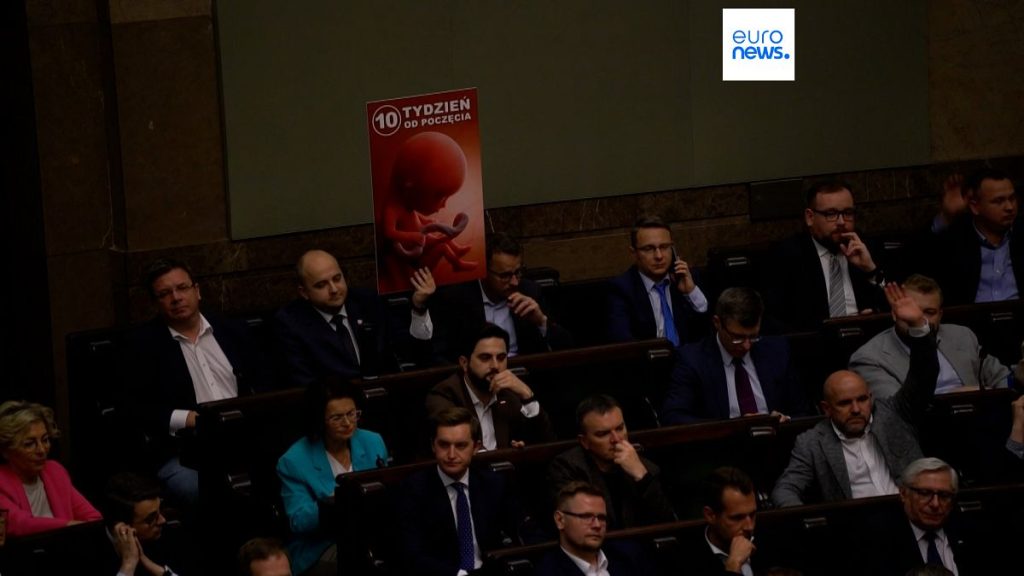Polish legislators recently voted on four separate bills regarding changes to the country’s highly restrictive abortion laws, a controversial issue in the primarily Catholic nation. Two of the proposed bills aimed to legalize abortion up to the 12th week of pregnancy, while a fourth bill sought to return to the restrictive 1993 abortion law. The vote was described as symbolic and a breakthrough by Ewa Schaedler from the Third Way party, although the subject remains divisive in Poland. Abortion has been allowed in cases of rape, incest, or if the mother’s life is at risk, but a 2020 court ruling further limited access by prohibiting termination due to foetal defects.
Kinga Jelinska from the Polish Abortion Dream Team, which supports women seeking pregnancy termination, highlighted the strong demand for abortion services in Poland. The organization assists approximately 130 women daily in obtaining abortions, with many opting to take abortion pills at home sourced from various providers. Some women travel abroad for abortions due to being more than 12 weeks pregnant, and the Abortion Without Borders network has spent over 11 million euros in supporting such cases. Despite the need for abortion services, there have been instances of women dying as doctors delayed performing terminations, underscoring the urgency of the issue.
Recent polls have shown increasing support among Poles for changing the stringent abortion laws in Poland. However, any proposed changes must be signed into law by President Andrzej Duda, who is aligned with the former populist government. Law and Justice party member Krzysztof Szczucki expressed his belief that the four drafts are incompatible with the Polish Constitution and should be rejected. While there is optimism among abortion rights activists like Antonina Lewandowska from the Foundation for Women and Family Planning for progress towards liberalization, they remain cautious about claiming victory too soon and acknowledge that more battles lie ahead.
The vote in Poland to examine liberalizing the abortion law comes as the EU Parliament pushes for abortion to be included in the Charter of Fundamental Rights. The subject remains contentious in Poland, a predominantly Catholic country with deeply rooted traditional views on abortion. Despite the progress made with the recent vote, the issue continues to spark debate and division among political parties and the public. The government’s stance on abortion and the influence of external factors like the EU Parliament further complicate the path towards potential changes in abortion legislation. The ongoing struggle for reproductive rights in Poland reflects broader debates around women’s autonomy and healthcare in Europe.
Overall, the recent vote in Poland to consider changes to the country’s abortion laws represents a significant step towards potentially liberalizing the restrictive regulations. The differing perspectives among legislators, activists, and the public underscore the complexity of the issue and the challenges faced in navigating the deeply ingrained beliefs surrounding abortion in Poland. While there is hope for progress in expanding abortion access and rights, the road ahead remains uncertain, with further legal, political, and social hurdles to overcome. The evolving landscape of reproductive rights in Poland reflects broader societal shifts and debates around women’s autonomy, healthcare, and fundamental rights in Europe.













